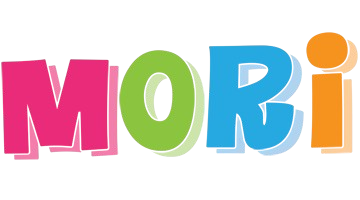In the Tapestry of Motherhood: Unraveling the Journey of Recovery from Childbirth
Like an intricate tapestry interwoven wiht threads of joy and sacrifice, the journey of motherhood is painted with hues of both beauty and challenge. One thread that has often been shrouded in mystery and varying perspectives is the recovery period after childbirth.
While some may have embraced the notion of a swift recovery, others have shared tales of a grueling ordeal that lingers far beyond the delivery room. With each mother painting her own unique thread into the tapestry, a question arises: how long does it truly take to recover from this transformative experience?
In an attempt to unravel this enigma, this article embarks on a quest to explore the medical evidence, personal anecdotes, and expert insights surrounding the enigmatic journey of postpartum recovery. Together, we will delve into the depths of this intricate tapestry, seeking to understand its complexities and unveil the truth that lies within its threads.
– The Physical Aftermath: Exploring Recovery Duration After Childbirth
Understanding the notion that full recovery following childbirth takes years is a common misconception, but achieving optimal physical and emotional well-being takes more than just a few weeks. While some recovery aspects, like vaginal tearing or C-section incisions, may physically heal within months, other aspects may take longer to fully resolve. Hormonal changes,altered body composition,and the adjustment to life as a new parent can all contribute to a protracted recovery. Additionally, each person’s experience and recovery trajectory vastly differs, influenced by factors like overall health, support system, and individual resilience. Recognizing the varying nature of postpartum recovery and seeking professional guidance when necessary can empower women to navigate this critically important phase and prioritize their well-being.
– Emotional Journey: Understanding the Psychological Toll of Childbirth
Emotional Toll of Childbirth
Childbirth can be an incredibly challenging and transformative experience, not only physically but also emotionally. The hormonal shifts, sleep deprivation, and the immense obligation of caring for a newborn can take a meaningful toll on a new mother’s mental health. Many mothers report experiencing a range of emotions in the months following childbirth,including:
Mood swings: Hormonal changes can lead to intense emotions,such as extreme happiness or sadness.
Anxiety: Concerns about the baby’s health, financial stability, and relationship changes can trigger feelings of anxiety.
Depression: Postpartum depression is a serious condition that affects up to 1 in 5 mothers and can include symptoms such as low mood, loss of interest in activities, and suicidal thoughts.
Body image challenges: Many women struggle with changes in their body after childbirth and may experience feelings of insecurity or dissatisfaction.
* Sleep deprivation: Caring for a newborn often means disrupted sleep, which can exacerbate emotional difficulties.
– Uncovering the Cultural Influences: Societal Beliefs and Recovery Timelines
Uncovering the Cultural Influences: Societal Beliefs and Recovery Timelines
Cultural beliefs and societal norms can substantially influence the perceived recovery timeline for childbirth. In some cultures, such as China, it is indeed believed that women need to “sit the month” after giving birth, a period of confinement during which they rest, eat nutritious foods, and avoid certain activities. This practice stems from the traditional belief that childbirth depletes a woman’s vital energy, and that it takes a month for her body to recover. In other cultures, such as the Western world, there is less emphasis on postpartum rest, and women are often expected to return to work and other activities within a few weeks.Though, research has shown that it can take up to a year or more for a woman’s body to fully recover from childbirth, both physically and emotionally.
– Recommendations for a Supported recovery: Tips for a Healthier Postpartum Experience
Tips for a Healthier Postpartum Experience:
- Take pelvic floor exercises seriously: your pelvic floor muscles do a lot of work during delivery, and they need time to recover. Pelvic floor exercises can help to strengthen these muscles and improve bladder and bowel control. Don’t be afraid to ask your doctor or physical therapist for guidance on how to do them correctly.
- Get plenty of rest: This is easier said than done with a newborn, but it’s essential for your physical and mental recovery. Take naps when you can, and don’t be afraid to ask for help from your partner, family, or friends with night feedings or other tasks.
- Eat a healthy diet: Eating a well-balanced diet will help you to recover from childbirth and regain your strength. Make sure to eat plenty of fruits,vegetables,whole grains,and lean protein.
- Exercise regularly: Exercise is another critically important part of postpartum recovery. It can help to improve your mood, energy levels, and sleep. Start slowly and gradually increase the intensity of your workouts as you feel stronger.
- Take care of your mental health: Childbirth can be a traumatic experience for some women. If you’re feeling overwhelmed, anxious, or depressed, talk to your doctor or a mental health professional.There is help available, and you don’t have to suffer alone.
Concluding Remarks
As we bid adieu to this fertile exploration, we reflect on the journey of postpartum recovery – a labyrinth that can test the limits of a mother’s resilience. While science may offer one set of timelines, each woman’s path is as unique as the life she has brought forth. Let us remember that recovery is not a race,but a pilgrimage – a sacred passage that unfolds in its own divine timing. With compassion and care for ourselves and each other, may we all find solace in the knowledge that the wounds of childbirth will heal, and in their place will bloom a newfound strength and a deeper recognition for the miracle we have nurtured.

